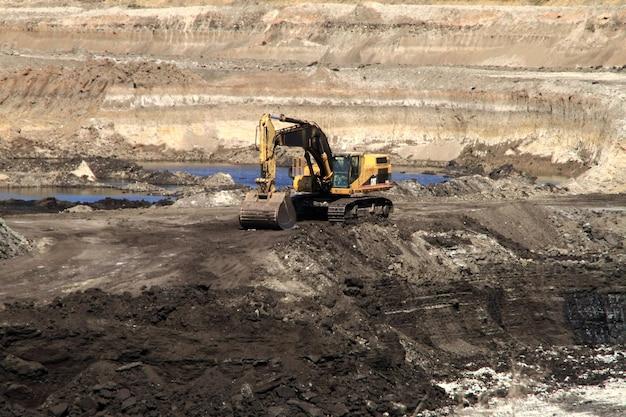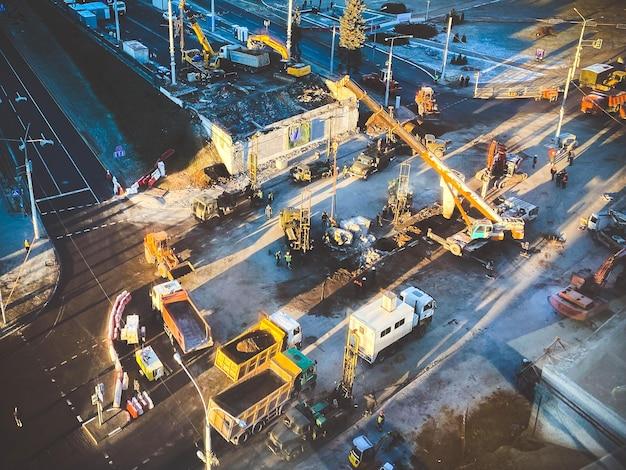As more people consider cremation as an alternative to traditional burial, questions arise about the process and what happens to the body afterward. One puzzling fact that often comes up is the weight of cremated ashes. It may seem surprising that such delicate remains can have a substantial weight, leading many to wonder why this is the case.
In this blog post, we will explore the reasons behind the heaviness of cremated ashes and answer common queries such as whether teeth and bones burn during the cremation process. We will also address the curious phenomenon of bones turning green when cremated, along with an explanation of why some cremation ashes are heavier than others. So, if you’ve ever wondered about the weight of ashes or had questions about cremation, you’ve come to the right place! Let’s dive in and uncover the mysteries surrounding this intriguing subject.

Why are cremated ashes heavy?
Cremation has become an increasingly popular choice for many people when it comes to handling the remains of their loved ones. However, one question that often comes to mind is why are cremated ashes heavy? It may seem counterintuitive that after the process of cremation, which involves intense heat, the resulting ashes would possess any significant weight. Let’s dive into the fascinating science behind this phenomenon.
The Science Behind Cremation
When a body is cremated, it undergoes a meticulously controlled process of intense heat and flames. The body is placed in a specialized chamber known as a cremation furnace, where it is subject to temperatures typically ranging between 1400 and 1800 degrees Fahrenheit. This intense heat causes the body to be reduced to bone fragments and ash.
The Weight of Bones
One important factor contributing to the weight of cremated ashes is the presence of bone fragments. Despite the high temperatures of cremation, not all organic matter is completely incinerated. Some parts of the skeleton, such as bones and teeth, are more resilient to heat and break down more slowly. These bone fragments remain in the ashes, adding to their overall weight.
The Mineral Content
Another reason cremated ashes are heavy is the mineral content within them. Our bodies naturally contain various minerals, such as calcium and phosphorus, primarily found in our bones. During the cremation process, these minerals undergo chemical changes but remain present in the ashes. Since minerals are relatively dense, their inclusion contributes to the weight of the ashes.
The Presence of Non-Organic Materials
In some cases, the deceased may have had medical devices or prosthetics made from non-organic materials. These materials, such as metal implants or dental work, are not combustible and cannot be entirely incinerated during the cremation process. Their presence in the ashes can increase the overall weight as well.
A Touch of Humor
Now, while weighing cremated ashes may not exactly be a popular pastime, understanding why they are heavy brings a touch of scientific curiosity to the journey of grief. So, the next time you hold a container of these weighty remains, remember that the heaviness represents the remnants of a life once lived, with bones that endured, and the indelible mark left behind in the form of minerals and perhaps a tiny bit of metal, adding a touch of unexpected weight to your loved one’s final journey.
In conclusion, the weight of cremated ashes can be attributed to several factors, including the presence of bone fragments, the mineral content, and the inclusion of non-organic materials. Embracing the science behind this weight can provide us with a deeper appreciation for the complexity of our human bodies and the memories they leave behind.

FAQ: Why Are Cremated Ashes Heavy?
Welcome to our FAQ section where we address common questions surrounding the weight of cremated ashes. Below, we’ll lighten up the topic (pun intended) and provide answers to some burning queries you may have. Let’s dive in!
Do Teeth Burn in Cremation
Yes, teeth do undergo some transformation during cremation. While they don’t completely burn away, the intense heat breaks them down into small fragments. These fragments are then further processed to create the final cremated ashes.
Do They Burn the Coffin in a Cremation
Ah, the coffin conundrum! No, the coffin is not burned during the cremation process. Instead, it is typically made from combustible materials that facilitate the cremation process. Once the cremation is complete, the remaining ashes are carefully collected and presented to the family.
Why Do They Cover the Legs in a Casket
No, it’s not a fashion statement or an odd tradition. The purpose of covering the legs in a casket is to maintain a dignified appearance during visitations and funerals. It ensures that the focus remains on the upper part of the body, where the face and upper torso are visible.
Do Bones Burn During Cremation
Yes and no. Initially, bones don’t burn per se, but they undergo a process called calcination. The intense heat and flames cause the organic components of the bones to be removed, leaving behind the inorganic mineral compounds. These mineralized bones are then further processed into cremated ashes.
Is DNA Destroyed During Cremation
Good news for fans of CSI: DNA is not completely destroyed during cremation. However, the extreme heat significantly damages the DNA, making it very challenging to extract for identification purposes. So, while some DNA may remain, it might not be enough for a full genetic analysis.
Why Do Bones Turn Green When Cremated
No, it’s not a peculiar superhero transformation. The green color that sometimes appears on cremated bones is a result of the high heat interacting with trace elements like copper. It’s a natural occurrence and nothing to be alarmed about.
Why Are Some Cremation Ashes Heavier Than Others
Ah, the weighty matter of cremation ashes! The weight can vary due to factors such as the bone density of the deceased and the duration of the cremation process. Generally, the more bone material present, the heavier the ashes will be. So, it’s all a matter of the individual’s composition.
Are Organs Removed Before Cremation
Yes, organs are typically removed prior to cremation. This is done during the embalming process or, in some cases, during a surgical procedure called autopsy. The organs are then either returned to the body or disposed of according to legal regulations.
Which Part of the Human Body Does Not Decompose
If you’re envisioning some sort of zombie situation, fear not! While most of the human body decomposes naturally, certain parts, such as hair and nails, are made of durable keratin. These materials persist long after the body has returned to the earth.
Why Are Bodies Buried Facing West
People often ponder why bodies are laid to rest facing west. The historical origin lies in the belief that at the second coming of Christ, the dead will rise from their graves and face east to meet Him. So, burying bodies facing west ensures they are prepared for this spiritual reunion.
What Does a Body Look Like After 1 Year in a Coffin
We must admit, curiosity about the appearance of a body after a year in a coffin is quite natural. However, it’s essential to remember that during this time, decomposition occurs. The body undergoes a natural process of breaking down, leading to skeletal remains and, eventually, cremation or further decomposition.
Why Do Ashes Weigh Less Than the Log
Ah, the classic “weighty” question! While a log may be heavier than cremated ashes, remember that wood contains a good amount of moisture. During the cremation process, the high temperatures remove the water content, leading to lighter ashes. So, it’s all a matter of moisture content, or lack thereof.
Is it OK to Keep Ashes at Home
Absolutely! Many families choose to keep their loved ones’ ashes at home in specially designed containers or urns. It’s a personal choice that allows for a close connection and a sense of presence. Just ensure that you follow local regulations and keep the ashes in a safe, secure location.
Is it OK to Split Ashes
Yes, it is perfectly acceptable to split ashes among family members or divide them for different memorial purposes. This enables everyone to honor and remember the deceased in their own way. Just make sure to handle the ashes with care and respect during the splitting process.
Do Bodies Sit Up During Cremation
Rest assured, bodies do not sit up during cremation. The intense heat and flames of the cremation process significantly alter the physical state of the body, making any movement or sitting up impossible. So, no need to worry about any spooky happenings there!
Which Part of the Body Does Not Burn During Cremation
The helpful answer to this question is that hair and nails, being made primarily of keratin, tend to withstand the heat and flames of the cremation process. However, it’s important to note that even though they don’t burn, they can get damaged due to the extreme temperatures.
Does the Body Feel Pain During Cremation
No, the body does not experience pain during cremation. The deceased individual has passed away, and their physical sensations are no longer present. Cremation is a respectful process that carefully and compassionately transforms the body into ashes.
How Much Do Cremation Ashes Weigh
The weight of cremation ashes can vary depending on factors already mentioned, such as bone density. On average, adult cremation ashes typically range from 4 to 8 pounds (1.8 to 3.6 kilograms). However, do keep in mind that individual results may vary, just like those gym weight loss programs!
Can Dogs Smell Human Cremated Ashes
Dogs truly have incredible olfactory powers. They can indeed detect the scent of human cremated ashes. That’s why some families choose to scatter ashes in places meaningful to their loved ones, allowing the memories to linger in the air like an invisible, comforting bond.
Why Are People Buried Without Shoes
No, it’s not a fashion trend from the afterlife! People are often buried without shoes for practical reasons. Shoes take significantly longer to decompose, and removing them allows for a more natural return of the body to the earth. Plus, going barefoot for eternity is undoubtedly a budget-friendly option!
What Does It Mean if Someone’s Ashes Are Heavy
While the weight of ashes can vary, unusually heavy ashes can indicate a few factors. It could be due to a higher bone density or the presence of medical implants that do not break down during cremation. So, heavy ashes might just mean the deceased was a “solid” individual in more ways than one!
Do Human Ashes Smell
Being considerate of your olfactory concerns, we’re happy to share that cremated human ashes generally do not have a strong odor. Any faint smell that may be present is often reminiscent of a wood-burning fireplace rather than something more, um, offensive. No need to worry about unpleasant lingering scents.
How Much of a Body Is Left After Cremation
The cremation process reduces the body to its basic elements. Generally, what remains are bone fragments and any non-combustible materials, such as medical implants. These fragments are then further processed to create the final cremated ashes, ensuring a respectful transformation.
How Long Do Cremated Ashes Last
Cremated ashes are, in essence, the enduring memories of our loved ones. When properly stored and cared for, they can last indefinitely. You can choose to keep them at home, scatter them in a meaningful place, or even create lasting memorials. The choice is yours, and the memories are timeless.
We hope these FAQs shed some light on the weighty mysteries surrounding cremated ashes. If you have any more questions, don’t hesitate to reach out. Until then, may your curiosity remain ignited!